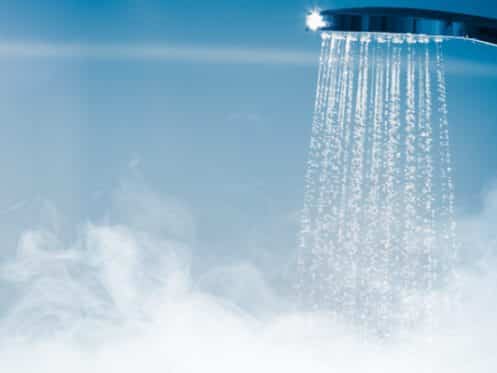Should You Install a Tankless or a Traditional Water Heater in Your Home?
A water heater is one of the most important parts of your home’s plumbing system. Without one, you couldn’t take a hot shower, clean your dishes, or do your laundry very well. However, depending on your specific hot water needs, there are two water heater technologies you have to choose from.
A traditional storage tank-based water heater is the most familiar to homeowners in the US, including in the Fresno, CA, area. The other alternative is a tankless, on-demand water heater system. Each has specific strengths and weaknesses. Here’s everything you need to know about tankless and traditional water heaters and how to choose between them.
What Is a Tankless Water Heater?
As its name implies, a tankless water heater supplies a house with hot water without preheating and storing it ahead of time. They’re also called on-demand hot water systems. Tankless water heaters are available in both natural gas and electrically-powered forms. In both cases, tankless water heaters use high-temperature heating elements and a heat exchanger to produce hot water when needed.
The Advantages of Tankless Water Heaters
Tankless water heaters come with a few major advantages. The first is efficiency. Since they only produce hot water when you need it, they’ll never use energy to keep stored hot water at your desired temperature. According to the US Department of Energy, tankless water heaters use 24% to 34% less energy than traditional water heaters in homes that use 41 or fewer gallons of hot water per day. They’re less efficient in homes that use up to 86 gallons of hot water per day but still use between 8% and 14% less energy than traditional water heaters in that scenario.
Another major advantage of tankless water heaters is space savings. Since they don’t store water, tankless water heaters take up very little space. They’re often wall-mounted and don’t require floor space of any kind. That makes them ideal for small homes or other environments where space is at a premium.
The Disadvantages of Tankless Water Heaters
Of course, tankless water heaters aren’t perfect. They do have some disadvantages you’ll need to keep in mind before choosing one for your home. One of them is that tankless water heaters cost significantly more than comparable traditional water heaters. Plus, if you have one installed in a home that previously had a traditional model, you’ll face higher installation costs, too.
Then, there’s also the matter of tankless water heaters having a limited flow rate. This means you could run short of hot water if you use too much at once. For example, if you started a load of laundry and tried to take a shower, both could end up lukewarm. To avoid that, you may need to buy a tankless water heater with higher capacity, increasing your costs.
Lastly, tankless water heaters will take some getting used to if you’ve never owned one. You’ll need to adjust to the fact that hot water will take a few extra moments to arrive at a faucet or shower when you want it. You will also need to get used to a phenomenon known as a cold water sandwich. That happens when you turn on the hot water at a faucet not long after someone else uses it. When that happens, you’ll feel an initial burst of warm water remaining in your pipes followed by a rush of cold water the tankless heater didn’t heat up. After that, you’ll start getting a steady supply of hot water.
What Is a Traditional Water Heater?
Traditional water heaters preheat water to your specified temperature and store it in a large tank until you need it. They’re the type of water heaters most homes and other dwellings in the US depend on for hot water. Traditional water heaters come in gas-powered or electrical variants, as well as in a variety of storage sizes.
The Advantages of Traditional Water Heaters
There are very good reasons that traditional water heaters are so common throughout the US. One of them is cost. Traditional water heaters cost significantly less than tankless models and cost less to maintain over their lifetime. Plus, the latest models of traditional water heaters boast efficiency levels that aren’t far behind tankless equivalents—especially in high-usage households.
Traditional water heaters also don’t have the flow rate restrictions that tankless heaters do. That means they’re far more adept at providing hot water to several outlets in your home simultaneously. On top of that, homes with plentiful space can simply install a larger traditional water heater to overcome capacity issues.
The Disadvantages of Traditional Water Heaters
Although traditional water heaters rely on long-proven technology, they do come with a few disadvantages relative to tankless models. One is that they can’t deliver an infinite supply of hot water. That means you’ll need to be judicious with your hot water use, or you might run out and have to wait for the tank to reheat and refill.
Another disadvantage of traditional water heaters is the amount of space they require. In most homes with a traditional water heater, you’ll find a closet or basement space dedicated to the unit. In some cases, space concerns may dictate the size of the tank you can install, further limiting your home’s hot water capacity.
Finally, traditional water heaters don’t last as long as tankless models, and they cost more to operate. Over time, that can erase a traditional water heater’s initial cost advantage.
Choosing the Right Water Heater
The first thing you should realize as you approach the decision between a traditional or a tankless water heater is that there’s no wrong answer. There are, however, a few guidelines you should follow. The first thing to consider is your home’s hot water usage. If you don’t use much hot water in your home, you’ll be able to maximize the efficiency benefits of a tankless hot water system.
If your hot water usage is on the higher side, or you want to be able to use hot water at multiple outlets simultaneously, a traditional water heater is likely a better fit. In that situation, it’s hard to justify the additional upfront costs of a tankless water heater, which would be even higher if you needed a higher-capacity unit.
You’ll also want to consider what kind of water heater you already have in your home. If you have a traditional water heater, it’s often easier to replace it with a similar model. Reworking your home’s plumbing can get expensive in a hurry if you opt to switch to a tankless water heater.
Trust the Water Heater Experts
When your home needs a new water heater, we hope that the information provided here makes your decision a bit easier. We’d also like you to know that you don’t have to make your decision alone. The experts here at Allbritten would be happy to consult with you to help you choose the right solution for your needs. We’re a locally-owned and operated business that’s served the Fresno, CA, area since 1932.
Plus, we’re not just plumbing experts! We offer a variety of home services ranging from cooling and heating system installations, repairs, and maintenance to insulation and indoor air quality services. Whatever your home requires, you can count on Allbritten to provide it.
So, when you need a new water heater or any other plumbing service, don’t hesitate to contact the experts at Allbritten right away!



